Global Crisis Overview
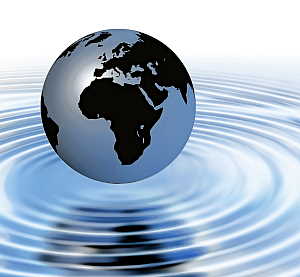
Social Dysfunction & Impact Of World Events Not only do we affect the external world, but the external world impacts on us, where the unstable world can affect our own stability, mental health. Alongside uncertainty we can experience existential loneliness, alienation, experience part of a collective, universal sadness. Interrelated events in the world can be experienced as turbulent - undergoing a critical and unpredictable phase, symptomised through climate change, environmental breakdown. The term "polycrisis" (coined by French philosopher Edgar Morin) refers to multiple, interconnected complex situations, which amplify each other impacting upon a global crisis, and this can be too vast for many of us to grasp (see also What Else Might Be Going On That We, Society Don't Act, Change?). Alongside climate change, the impact of wars, where military might, nuclear weapons can destroy the planet, migration, misuse of artificial intelligence (AI), algorithms, biotechnology, genetic engineering, pandemics can be considered part of the polycrisis we are experiencing. It is argued that other factors also contribute to major world events, environmental breakdown, global crisis, including:
- Overlooking, that land gives us life and we co-create it
- Many beliefs, assumptions, systems and practices, alongside omnipotent thinking may be counterproductive to civilisation thriving, evolving
- We may be grieving humanity and unbalanced, unnatural and disrespectful ways of living, lack of collective responsibility, global cooperation in psychologically dysfunctional societies, unsustainable social structures rooted in power dynamics in an inherently win/lose way of living, where economic imbalance and profit, unhealthy competition is unaligned to global and human needs, or a softer, yet powerful, way of living
- Political crisis, including populism (e.g. soundbites, views, which on the surface sound simple and good), or personalities over policies that bring people together & excessive pride, unsustainable political systems - the way we treat the planet (or in democracies, traditional left and right politics) - see also New Paradigms Within Local & Global Politics
- Authoritarian leaders
- Dystopian systems of conflict, control, oppression
- Short-termism & lack of immediate & long term, sustainable action
- Polarisation - thinking in absolutes
- Social injustice, collective narcissism and individualism, that harms other people and the planet, and is out of tune with community, the wider world, interdependence, interconnectedness
- Dominant voices, which exclude marginalised others (see also Identities, Labels & Conditions)
- Power imbalance, resulting in separation, alienation from the world's dominant forces
- Materialistic selfishness, becoming so individualistic based on rampant consumerism & the downside of neoliberalism, capitalism, especially if it lacks transparency
- Financial institutions, economic growth dominate, where a one-size-fits-all "expert" system, denies local knowledge, ancient wisdoms of indigenous people who centuries ago realised we are all connected, acknowledged the consciousness of the planet and made no separation between mind, body, earth, which got lost in the name of so-called "progress" (The botanist Robin Wall Kimmerer writes how indigenous cultures don't recognise land ownership, we may ask who owns the earth or are we custodians of it)
- That big business is not always on-board, because climate crisis is not always just another business opportunity
- Living in an illusory world that "know" financial truths have all the answers supported by half-truths, distorted, manipulative reporting (e.g. carbon offsetting can look impressive only on paper, camouflaging meaningless, placatory soundbited targets, which are modest and ineffective decades ahead, distorting statistics, how countries, companies try to show how carbon neutral they are and what a great job they are doing, yet meanwhile the earth speaks a different language, tells us something different and there is a disconnection between the two, symptomised by the planet's sickness)
- Economic systems dependent on permanent growth, which are no longer fit for purpose (e.g. GDP at the cost of prioritising people's, earth's wellbeing, that they are globalised often interconnected financial systems, which don't recognise international borders, yet minimal interconnected, coherent globalised response to the planet - which doesn't recognise borders, nor selfish, national interests)
- Commodification of land - land grabbing, land buyoffs leading to people's dispossession, where corporate policymakers ensure global prices (e.g. food) are subject to stock market fluctuations
- Dysfunctional money management, fractional reserve banking - loaning money that doesn't exist, qualitative easing - the artificial printing of money, money obsession, individual & collective greed, financial wealth preoccupation, the cost of maximising shareholder value
- Freedom of speech, no matter what, can become corrosive
- How technological forces are reshaping social cohesion (e.g. biased, unregulated algorithms, artificial intelligence - AI)
- We, others, the world may be affected by injustice, social inequality, values system in society, that just aren't fit for purpose, alongside globalisation, privatisation of state assets
Climate Change Anxiety, Eco-Distress & Grief
I believe that we are engaged in committing suicide: intellectual suicide, moral suicide and physical suicide. If there is anything as important as stopping us poisoning our seas and destroying our forests, it is stopping us poisoning our minds and destroying our souls.Ian McGilchrist
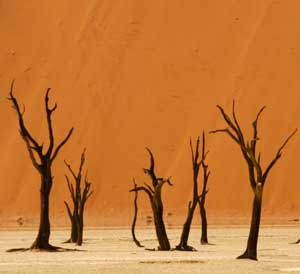

Societal Dysfunction, Climate Change, The Impact Of Eco-Anxiety, Climate Grief, Collective Trauma - What May Be Happening Inside The British Medical Journal describes eco-anxiety, eco-distress as a chronic fear of an environmental doom and the American Psychology Association describes eco-anxiety as "the chronic fear of environmental cataclysm, that comes from observing the seemingly irrevocable impact of climate change unfold and worrying about the future of oneself, children and later generations". Valuing community, creation, life itself, all life, we may personally and collectively be anxious about the planet, experience global grief. We may have lost connection with others and the rest of the world, our own sense of belonging and have been living as if separate from our body, each other and the environment, our interconnectedness - all one at some level. And it can be as if we overlook that each human being and nature are the same - not separate - so we have human rights laws, yet ineffective planetary "rights". Understandably, we may feel disturbed by attitudes, actions (and non-actions) about earth's natural resources, nature. We may have a strong reaction to what we care about. We personally didn't agree for the way the world treats the planet, and we are never going to change the climate on our own. We may have lots of feelings, reactions, thoughts, ideas in terms of what's happening to the planet, and we may want to create, heal, align with the energy of the planet through energy work - for where we put our attention, energy flows (see also Setting Boundaries Psychotherapy - What We Resonate - Noticing Our Energy, Vibration, Frequency, Energy Inside & Outside Of Us). We may judge ourself, blame ourself, feel guilty, ashamed, fearful, frustrated, righteously angry, outraged, heartbroken, with a sense of meaninglessness. Some reactions can be counterproductive if we remain immobilised, stuck, hopeless in this place or see people, countries either as good or bad. We may need a new paradigm for sustainability.
We are in danger of destroying ourselves by our greed and stupidity.Stephen Hawking
What Else Might Be Going On That We, Society Don't Act, Change? Both individually and collectively the situation out in the world can seem too vast and struggle with uncertainty. We and others may:
- Disavowal - acknowledging what's true, yet convincing ourselves it doesn't matter by bending the truth, keeping our thoughts separate from feelings, so the real picture need not trouble us, that we can feel undisturbed (and group disavowal through socially constructed silence)
- Ignore the perceived drip - drip effects on climate change, because the human brain may be wired to act only upon immediate danger
- Be in denial (e.g. when a conscious fact we repress and its psychological implications are denied)
- Minimise (e.g. there is probably some truth in what is happening)
- Be part of a socially constructed silence
- Negate - saying what is true is not true (it can often be too painful to accept reality and mourning)
- Not want to risk unpopularity, stand out
- Feel distressed - it's all too much
- Instigate or believe conspiracy theories
- Hold an irrational belief that mother nature (like our own mother) will clear it all up
- Hold inflexible, concrete thinking
- Feel hopeless, helpless, carry a sense of impending doom (e.g. the world has already lost the battle, why even have children, why do anything), environmental cataclysm - that destructive and violent events impacting upon the environment are due to human actions
- Feel in collective shock, collectively paralysed, traumatised
- Psychologically numb ourselves, feel impotent
- Struggle to forgive ourselves, others
- Carry a death drive
- Experience hyperobjects - a term coined by Timothy Morton - that the many systems involved are too vast, complex to see all at once
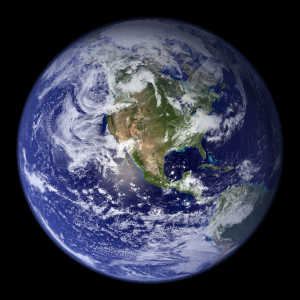
Talking About State Of Planet Health, Eco-Anxiety, Eco-Distress, Climate Grief, Environmental Breakdown, A Crisis Of Political & Spiritual Consciousness & Action We may want to talk about what crisis means for us - its impact, specific concerns, fears, responses regarding the environment and all the impacts, (global heating, climate crisis, climate emergency, climate anxiety, depression, eco grief, bio-diversity crisis, erosion, climate pollution, plant depletion, green issues, ecopsychology, ecologism, air pollution, nature loss, global change of ecosystem, species depletion, animal cruelty, extreme weather, energy crisis, social collapse, climate refugees, destruction, wars, death, ecocide, disharmonious effects upon dysfunctional relationships). This can be called Anthropocene - how human behaviours and actions have influenced the climate, environment, through dominating, disrespecting nature, rather than being a respectful holistic participant within it, recognising that the richness of the environment is our shared home. We may also want to talk about the impact of monoculture, deforestation, depletion of essential minerals, zoonotic diseases from other animals jumping to humans, food production, over-population, and population displacement, water shortages through rainfall changes, patterns of changing climate. What goes on in the world impacts on us and the therapy offers a space to talk about our disturbance, any numbness, impotence, grief, frustrations, stress and trauma, maybe anger and rage (all of which are understandable responses about what's happening to the planet). However, focusing on our helplessness, fears and dramas, shame and guilt, means this is what we create. Re-evaluating what makes our life worth living, repairing what we can, remaining connected with nature, joy and supportive others, not overloading ourself with information, living for each day, being in the moment, may be important to us. As a human species we have been pretty good at innovation, adaptation - survived plagues, wars, migrations, natural disasters and previous climate change, taking may years of human evolution. And this climate crisis calls upon personal, local and global action through exploring our relationship with nature and the environment - both the external environment and our "internal" environment - what's happening inside us, alongside acknowledging the existential threat of life. Some can view this crisis as needing both practical and spiritual responses, acknowledging consciousness in and beyond us, spirituality. Coming from the heart, we (and indeed all of us) may want to engage in environmentally beneficial behaviours, exploring what abundance, laws of attraction mean for us. We may want to add our contribution to personal and universal good, infinite creativity in order to proactively, sensibly contribute to using Earth's natural resources, healing the planet through relational responses. The counselling for eco-anxiety, eco-distress, climate depression can be a space to talk about these. This may include exploring how we can move from any rigid thinking, fear, dread, impending doom and catastrophe to appreciation, stewardship of the planet as guests in the world, towards building emotional resilience, hope, transformation focusing on our vision, supporting the economic, physical, emotional, spiritual health and cultural change of all and taking action towards serving life, building communities. This may begin by identifying what matters to us, focusing on small, constructive, meaningful actions acknowledging that the planet can't be fixed, but can be ethically managed. We may also want to explore our practical skills, innovations, emotional intelligence, creative imagination "outside the box", networking and working collaboratively in communities, utilising our communication skills in order to continue to enjoy life and be active towards climate justice, positive climate change and action - as Shelly writes "Rising like lions in slumber". (For some of us it may also be important to realise that throughout millions of years the planet has gone through many cycles of profound climate change.)
All things in nature, even the universe itself, have their span of existence, birth and death, beginning and ending.from Amaravati Buddhist monastery writing of the meditation teachings of Ajahn Sumedho
All that we perceive, and can conceive of, is change, it is impermanent. So it can never permanently satisfy you.
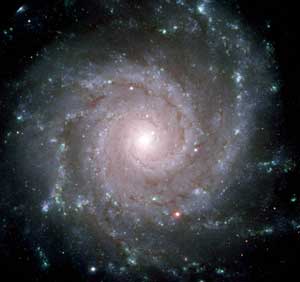
Different Paradigm For Sustainability As long ago as 1987 the UN's Brundtland Report (also called Our Common Future) attempted to define sustainability "Development that meets the needs of the present without compromising the ability of future generations to meet". Acknowledging the need for reparation, the Quaker movement define sustainability as living in a way we bequeath to the next generation that leaves the planet in the same or better state through stewardship and address the need for "sustained" sustainability through a number of qualities: truth, equality, simplicity, beauty, peace (see also Peace Of Mind, Stilling Our Mind, Contentment, Inner Peace, Internal Calmness - What May Help). This goes against our current ways of living, as if we humans possess, own the planet, necessitating a paradigm shift towards a visionary landscape in our minds, putting these into action, including guardianship, trusteeship, stewardship. Over centuries civilisation has stepped into and responded to various paradigm shifts. In terms of sustainability, the way things are in the world may not be working for many of us. And it could be said that the world is focusing on the wrong things, especially when it feels dystopian, alienating from the heart, mind, spirit and is out of tune with ourself, community, the wider world, our interdependence, interconnectedness, oneness, unity and shared purpose. Global problems ultimately need global solutions, alongside local ones. This requires structural shifts and a global consciousness, global actions. "Think global, act local" Patrick Geedes states. The British Quaker movement back in 1988 made a clear statement acknowledging the sanctity of life, that the human footprint on the globe needs to be light and undamaging: "Our planet is unstable, seriously ill and we can feel the pain. We have been reminded of the many ways in which the future health of the earth is under threat as a result of our selfishness, ignorance, greed and need to face the loss of old ways of living, that no longer serve us and the planet, so we can repair our relationship with the natural world. Our Earth needs attention respect, love, care, and prayer". We may see that unloving, universal damage has been done to the planet, now requiring universal love and action - prioritising the planet in all our lives - a move from grief to hope. As in relationships, there can be an imbalance between givers and takers, and how we give and take from the planet may need to be radically changed, transformed and radical problems need radical solutions. We have yet to discover, decide upon, act with different sustainable ways of living - maybe a softer life - powerfully, only contributing towards sustainable investments, economics (this may also require radically tackling inequality, redistributing finance on a global scale) embracing universal principles, tuning into forms of energy, consciousness, co-creation, imagining the world we want to live in - envisioning this and moving towards this. Placing healthy sustainability in all its manifestations may need a fundamentally different global paradigm, rising above narrow state interests. We may need to acknowledge what connects and disconnects us, what is disharmonious, harmonious, and recognise what's happening to the planet as a spiritual crisis, requiring spiritual solutions, supported through spiritual depth, consciousness both in and beyond us with planet-sustaining living and actions, alongside striking a balance between life's material and spiritual world.
The world we have made as a result of the level of thinking we have done thus farAlbert Einstein
creates problems we cannot solve at the same level of thinking at which we created them.

New Paradigms Within Local & Global Politics It can be viewed that society is sick, symptomised through the environment around us. Acknowledging the limitations of individual lifestyle changes and technology, we may feel frustrated by lack of radical system change and radical action by governments to stop climate catastrophe. Within an international, global context, whatever political systems we are in around the world, the planet needs new institutions with new ideas. Whatever type of government, political systems or hybrid (monarchy, authoritarianism, oligarchy, totalitarianism, democracy), the planet is uninterested in these, including combative party politics, patriarchy. All these political systems may be irrelevant towards healing the planet, including democracy, which has its own challenges in tackling global crisis (it was Churchill who once said, "Democracy is the worst form of government, except for all the others"). We may feel duped for going along with corrupt forces, misguided leadership, failure to adapt and want to take heartfelt, conscious, effective, long-term action above party politics, political polarisation. The climate is in action, yet we may experience our leaders' inaction with vacuous, warm words without effective deeds or no serious global leadership. Utilising our critical thinking, moving towards momentum, we may want to be more empathic, active, creative out in the world, towards making, adapting communities more resilient, through radical transformational change, holding our politicians and their petty tribalism to account and no longer be puppets to the puppeteers. Democracy, when in the right hands of good leadership, delegated to people we trust, is intended as a powerful tool for order, liberty, justice and equality and at its core is supposed to be about transparency and accountability, built on principles of respect for human rights, collective decision-making - where all have a voice, through open dialogue and needs safeguarding to protect subversion, protect us, the planet. We may question what is the point of democracy if on the surface it's a seemingly functional system, yet also a veil to protect the interests of institutions, who are detached from real life experiences - some of them corrupt, where (ironically a select few) individuals hold concentrated power, or with others who have deceitful, selfish, harmful goals, that may be manipulative or corrupt, spreading false information. Democracy can be experienced as a façade, with illusions of control, when it claims to uphold democratic values, yet manifests within hierarchical top-down power through controlling communities, overrides egalitarianism, civil liberties, where token checks and balances are ineffective, which actually oppress rather than liberate. Powers that exist are not always acting in the best interest of people - the planet. Power may need to be redefined as not coming from external forces, material successes and wealth, exploited by those in control through misinformation, censorship or divisive narratives, undermining global public trust. These old paradigms promote separation, division, fear and depletion. Structures we once relied upon may no longer serve us or the planet and may be collapsing. As we let go of our old ways, new possibilities can emerge. It may therefore be crucial for systems to be informed, vigilant and engaging in order to resist forces, that may seek to undermine true democratic principles (see also Freedom Of Expression, Freedom Of Speech & Social Media Addiction Counselling London). Transcending the limitations of the past, a reworking of political systems with international collaboration, which moderates inequality, enhances democracy (or fresh, untried political ways), towards an inclusive way of living compassionately, spiritually awakened and aligned, honouring life's sacredness, interconnectedness, our commonalities, the wellbeing of people, the planet, a green economy at the forefront with nature-based solutions, tuning into forms of energy, valuing consciousness in and beyond us may be called for. And co-creating a new reality through collective social integration, relational consciousness - that others' wellbeing is interconnected, may well take radical attitudes, intentions, ways of thinking, clarity, courage, faith, Love, hope, creativity, orientating our heart towards action, in a peaceful, cooperative world, which acknowledges values.
There is a pleasure in the pathless woods,George Gordon Byron
There is a rapture on the lonely shore,
There is society where none intrudes,
By the deep Sea, and music in its roar:
I love not Man the less, but Nature more,.
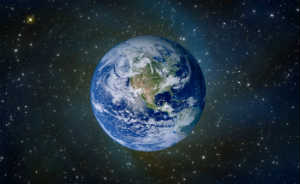
Value Of Nature, Force, Energy, Power & Harmony Of Nature, Natural Resources The invisible, benevolent presence, energy of nature, its power, harmony, beauty and companionship, its giving and receiving, awe and wonder (uncertainty and chaos of life), as can be silence in or out of nature, the galaxy, universe, has a different time and space and is outside of human conflict. The way we humans treat the energy nature as our home, the planet, may concern us and we may overlook that land gives us life, nature is part of every human being, and every person is part of co-creative nature. Whether in stillness, silence or solitude, or whether sharing nature with others, breathing in the fresh air, appreciating sunlight and darkness, the night and day sky, the oceans, landscapes, mountains, winds, interacting and relating closer with the energy of nature and its elements of earth, water, fire, air, ether, getting in touch with the natural world can be uplifting, putting us in touch with ourselves, our senses, sexuality, the wider world and maybe a sense of consciousness where nature, animals are simply in the moment and evolving through evolution, as Darwin would acknowledge. (Observed by Professor Jaak Panksepp, there are instinctual communities in nature, emotional feelings in animals and humans - rage, fear, sexuality and lust, care, panic, grief and play which can trigger the animal human attachment of bonding through engagement, comfort, play and safety). Like us, nature is interdependent on the right conditions to flourish. Bringing nature and beauty into our life, our very being and other human beings - the natural environment (e.g. pets, animals, birds, water, rocks, plants, trees, scenery, the seasons, the so called small things - a mountain view, a sunset, a butterfly, flock of birds, animal sounds, a child's natural laughter) - tuning in and connecting to nature, being in it, part of it, with it, embedding nature in us - everyone and everything around us, participating with it, surrendering to it, trusting it, imagining it, can have a restorative value, nourishing us, teach us there are things we can't change, control, respect and also humbly show us how small we are in its vastness, life's interconnectedness, living under one climate - for we human beings have our own eco systems and are part of a larger eco system. For some the sublimeness of nature, contemplation may lead us to losing a sense of our own importance, spiritual enquiry, connection. Whether it's being in a local park, sitting in nature, experiencing its interconnectedness, beauty, hiking hills, mountains, swimming in lakes or the sea, sensing the universe can give us an experience of awe, wonder, and being in nature for most of us gives us a sense of peace, calmness, harmony. This connection with the rhythm, flow of nature - its balance and how it also embraces its mutually dependent opposites (e.g. its competitive and collaborative nature, tree branches and roots, cold winter killing unnecessary germs in the soil and the renewal of springtime), sustainability and diversity, changes, transformations and how it rejuvenates through the season's rhythms, ongoing cycles of birth, life, growth, radiance, letting go, death, decay, rebirth and life has evolutionary influences going back to our ancestors and the evolving force of the healing power of nature may put us in touch with existence (and existential dilemmas) our sense of or fears of our own mortality alongside life-meaning love, peak experiences. Some people may acknowledge, that as humans have respects, and rights to life, so too do animals and want to give legal rights to nature, protecting natural entities through trusteeship, stewardship, guardianship - an aspect of Maori living. And others may connect to animism - that spiritual life is everywhere.
We are nature, we come from nature, we return to nature.

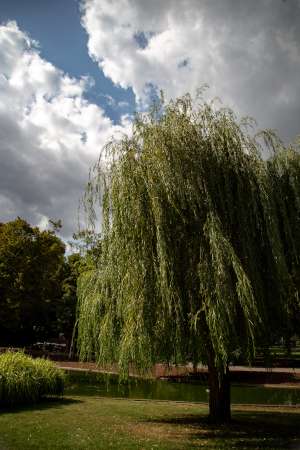
Energy & Quality Of Trees The qualities of trees can inspire us. Their presence - like our own, can refresh others, provide support. (The roots of trees, often invisible, can remind us of our own unconscious.) Trees, like us, keep growing no matter what by staying rooted (see also Re-Connecting To Who We Are, Being Grounded & Secure, Inhabiting Our Body, Standing Up For Ourself) and for us - being in our own values, rooting for ourselves and others can be supportive. Trees, like each human being, are unique - some stand tall, whereas others bend and both of these qualities have advantages. Strength is not only about power, it's also about flexibility and ability to soften any hard edges. Visually, the oak tree can seem more resilient than the willow tree, yet its branches will snap in a strong wind, and the whole tree can be uprooted. (It is thought that the oaks in Sevenoaks were planted 800 AD, yet 6 of these mighty oaks were knocked to the ground and only one oak remains, due to a storm.) Sometimes we need to be like an oak tree, upright and strong, yet other times more mobile, flexible, resilient, have strength through yielding, knowing what to let go of all that is not essential. Like the grace of the weeping willow tree, we may need to bend with the wind at times, go with the flow with things. And when we are flexible like a willow tree, we can survive life's storms, trusting whatever comes our way, so when there is the unexpected or if someone disagrees with us, we don't have to always meet force with force. We can be inwardly strong and gentle, bends without breaking (see also Flexible Thinking, Cognitive Flexibility), so we don't topple over, waste energy resisting things. We may want to resonate with, also notice our own energy vibration. (See also Soft Living, Living A Soft Life Powerfully)
The oak fought the wind and was broken, the willow bent when it must and survived.Robert Jordan - The Fires of Heaven
